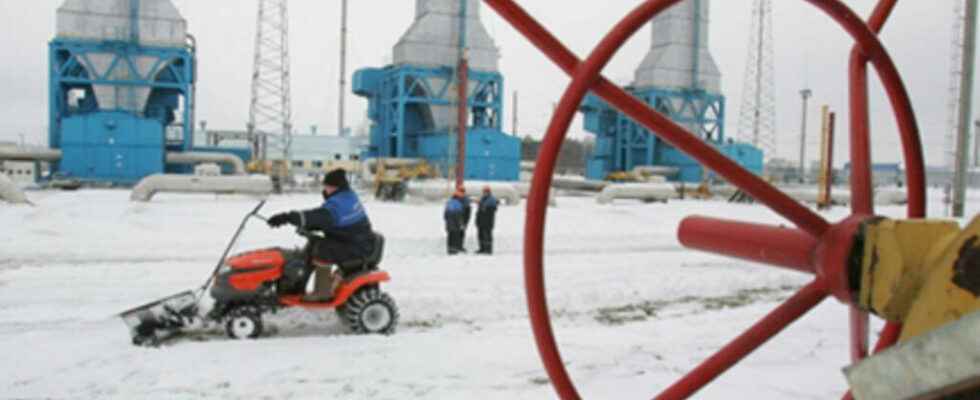“Possible sanctions against Russian crude will be on the menu of European countries this week “, highlighted The evening. And fetching oil elsewhere will be “ a major logistical challenge “warned the Belgian newspaper. A “ equation ” to ” multiple unknowns “. ” It’s necessary, valued The evening, prepare to sustain an energy shock because, he says – and this is the whole European paradox – “ continued Russian gas and oil imports fund Putin’s terrible war “. In this sense, summarizes the newspaper, “ the Europeans’ commitment resembles a leaky barrel, giving Putin with one hand what they are trying to take away with the other. Or, even more absurd, indirectly supporting the Russian army at the same time as, directly, the Ukrainian resistance fighters “. But “ fear of shock should not prevent European states from taking action “, he concludes.
The Wall Street Journal goes even further, recalling that the energy crisis is not the only threat hanging over Europe. ” Countries are also engaged in a race to avoid the grain crisis “, notes the American daily. “ From India to Ireland, governments are taking steps to fill a void from the Black Sea region “, he adds, specifying that “ Russia and Ukraine (…) represent (…) more than a quarter of world wheat exports “. In short, the danger is there: if hostilities continue during the summer, explains the newspaper, crop failures will keep prices high, jeopardizing food security in regions like the Middle East and North Africa, where soaring food prices have contributed to political instability in recent decades “.
The consequences of this war worry even Russian business circles
The New York Times tells us about the concern of the Russian oligarch Oleg Tinkov and its consequences. ” A tycoon criticizes Putin’s war and pays the price “, headlines the daily, explaining that the billionaire is now obliged to “ to hide after publicly speaking out against the invasion of Ukraine. According to New York TimesOleg Tinkov “ claims that many of his acquaintances in the business world and within the government elite told him privately that they agreed with him but were all afraid “.
A Russian elite divided in the face of war », summarizes for his part The weather. The Swiss newspaper devotes a long article to those who are called “the Falcons of the regime. They “ dominate the information space “, continues the daily, “ even pushing to go further in the conflict “, in what he describes as “ flight forward ” and of ” permanent one-upmanship “. The newspaper summarizes the situation of these Russian elites as follows: to survive politically in this system, to find a place in the sun, it is vital to follow the direction of the wind “.
US Supreme Court set to strike down abortion rights
There ” next step for the anti-abortion movement: a national ban », title the New York Times. Several newspapers of the press on the other side of the Atlantic indeed reveal that the highest jurisdiction of the country would be ready to prohibit abortion “ beyond six weeks of pregnancy “. It all started with a leaked draft law review, revealed by the site Politico.
“ Republican Party activists and some legislators “, tell us the washington post“ are ready to put pressure “. But this decision should not be finalized for a month or more “, tempers the New York Timeswhich specifies that the project could change shape “.
But what challenges the American newspaper is above all the character “ unprecedented ” of this “ document leak ” in “ the modern history of the Supreme Court ” the United States. In this regard, he considers that: the escape could be the result of a calculation to induce the Court to go in another direction “.
Disrepair of British hospitals, patients in danger: the disturbing revelations of the Times
” Dilapidated and dirty hospitals endanger the lives of patients », headlines the British daily. The newspaper investigated the matter and reveals that “ the number of clinical incidents related to the lack of repair of buildings » or to « faulty equipment ” has ” tripled in five years “. the Times describes ” collapsing ceilings “, from ” power outages that disrupt operations » and « hundreds of appointments canceled due to dilapidated infrastructure “. Among the incidents cited is the case of this patient “ on a respirator (…) got stuck in a broken down elevator for 35 minutes “. In short, the picture is alarming. And the paradox is all the more glaring, continues the newspaper, that ” the Ministry of Health accounts for around 40% of daily government expenditure “.
